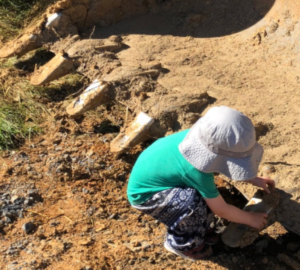This has been a long time coming. And it was part of a well orchestrated series of related statements that together are setting out the vision of this Administration's foreign policy. The speech cannot be read alone but acquires greater depth when read alongside recently delivered
President Trump's U.N. Speech, and
John Bolton's earlier ICC speech. It "underlines the obvious" in the sense used in the title of this post in the sense that it refines the implications of both earlier speeches, but much more directly, it develops the quite transparent statements of policy already made a central element of the
U.S. National Security Strategy.
The speech makes the case for the various policies that together now constitute the operationalization of the NSS's competition not adversary policy. The key portion of the speech, and one likely to be overlooked, lays out the framework within which, at least behind closed doors, the opportunity continues to be available to form that partnership of mutual interest that might benefit both states.
We should remember that “Competition does not always mean hostility,”
nor does it have to. The President has made clear, we want a
constructive relationship with Beijing where our prosperity and security
grow together, not apart. While Beijing has been moving further away
from this vision, China’s rulers can still change course and return to
the spirit of reform and opening that characterize the beginning of this
relationship decades ago. The American people want nothing more; and
the Chinese people deserve nothing less.
And here again, the language of the Global South, now embraced by the leaders of the Global North: "we will not relent until our relationship with China is grounded in fairness, reciprocity, and respect for our sovereignty."
Of course, unstated, and essential, is the embrace by the United States of an alignment of its own approach to those sentiments. In order to make a deal, one needs a partner rational enough to deal, but one also needs to be committed to dealing. It is not clear what the U.S. is willing to concede--and there will have to be some concessions respecting the ordering of China's internal markets and the projections of its politics through its global SOEs for which a principle of strict mutuality may not suffice "to reset America’s economic and strategic relationship with China.". But long term best interest Chinese concessions are likely to be equally strict, and conceptually painful to the Chinese leadership. And in that context
personal ego inevitably gets in the way. This may well be a context in which the
leadership collectives of both states might be most useful to their respective cores.
At the same time, the Vice President marshaled virtually all of the key arguments that have been amassed in the public campaign to weaken China's efforts to appear to have the better moral claim in the heated negotiations with the U.S. to remake the basic structures of global trade. Again, here the U.S. embraces itself in the rhetoric of the Global South, painting China--and quite effectively from a discursive perspective--as the epitome of the contemporary Global North. The Vice President's hand was strengthened by the apparently fortuitous widespread circulation of an
investigative report that accused the Chinese PLA of a sophisticated campaign to sneak spying hardware onto motherboards supplied to key public and private institutions in the U.S. For all that, the object remains negotiation and accommodation.Yet this also speaks to the rhetoric of Bolshevik infiltration that permeated American politics from the 1920s through the 1950s.
It is unlikely many people will see it that way. Too many people have too much invested in ideologies whose objective is to augment antagonism; too many institutions have factional interests in continuing to foment conflict for their own or factional advantage; and the friends of both of these powers would like nothing more than the cultivation of an antagonism that creates the opening necessary to weaken both to their advantage. And over all of this is the mutual antagonism of a large clique of intellectuals, public servants, who might view with some alarm the alignment of the U.S. and the Chinese in abandoning the great multilateral project of the Post-War 20th century in favor of more regionally focused bilateral multilateralism it the form of "America First" and "Belt and Road" Initiatives. That alignment itself was underscored by the recent announcement of the American version of the Asia Infrastructure and Investment Bank, when on 4 October 2018 "the U.S. Senate passed the
Better Utilization of Investment Leading to Development, or BUILD Act, which will create a new U.S. government agency — the U.S. International Development Finance Corporation. Development experts called it the biggest change in U.S. development policy in 15 years" (
A new US development finance agency takes flight).
For all that, there is much that one might read into the speech. That reading would yield better results in context. Yet context has never been an amiable companion to politics. And politics and egos have never been a good combination. The drama continues and the Vice President's remarks follow.













